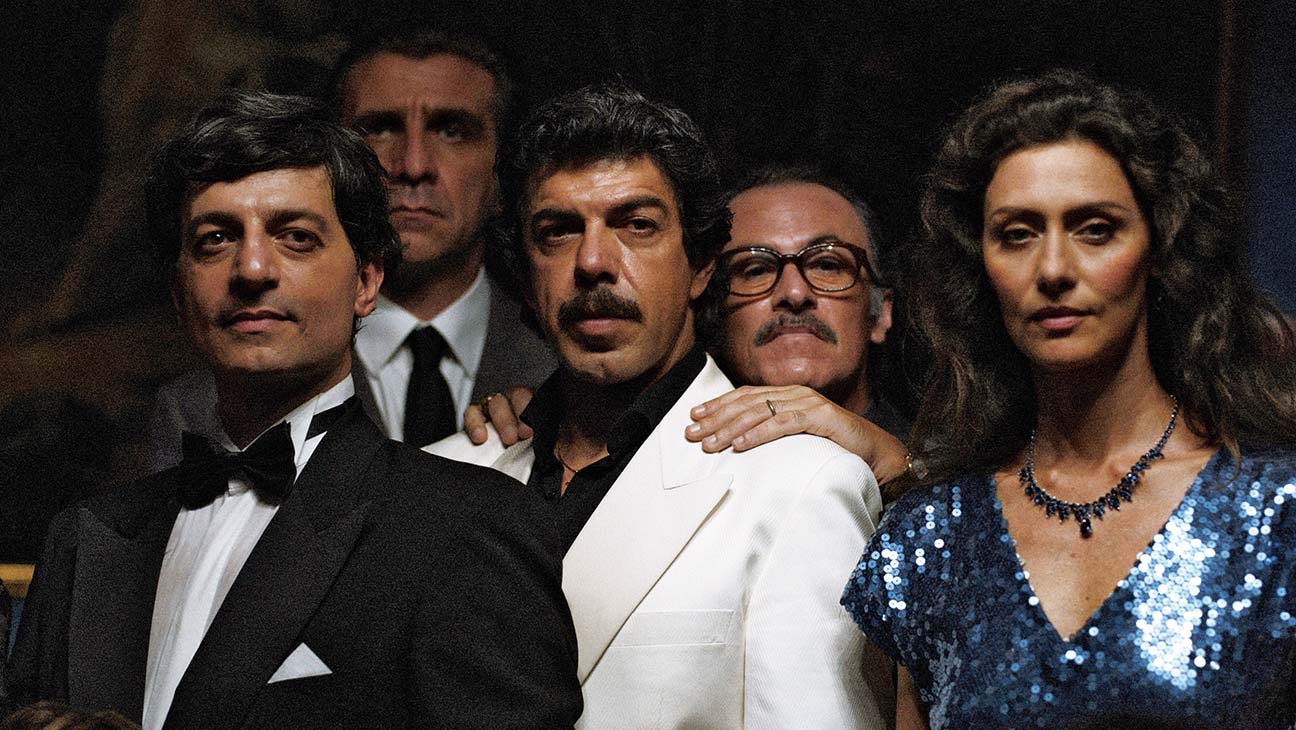
Marco Bellocchio’s latest film, The Traitor, brings the story of mafioso turned informant Tommaso Buscetta (Pierfrancesco Favino) to the big screen in 2019’s best mafia movie (I’m looking at you The Irishman). In 2 hours and 15 minutes of intense dramatic scenes and thrilling montages, the 80-year-old director stitches together a mafia movie, courtroom drama, and biopic about the first person to confirm the existence of the mafia in Italy and to break Cosa Nostra’s oath of silence. Bellocchio refuses to shy away from any techniques that might enhance his story. The result is a sometimes messy but effective film that leaves you wanting to know more about this period in Italian history.
The film chronicles Buscetta’s life from the moment he decides to move to Brazil with his 3rd wife Cristina (Maria Fernanda Candido) in order to escape some of the turmoil in Palermo. News eventually reaches him that his sons, who had stayed in Italy, have been murdered during a bloody mafia war. Buscetta then decides to return to Italy, but is arrested by the Brazilian authorities, tortured, and extradited to Italy, where he decides his best course of action is to turn informer.
The Traitor is a flawed movie precisely because it is too ambitious. It demonstrates a profound understanding of its protagonist so thorough that I almost want to claim it as a character study, and perhaps it would have been better this way. But Bellocchio tries to cover so much more ground than just Buscetta’s life, spending time on the effect that the mafia had on Sicilians during this time and even the Maxi Trials that Buscetta was not present in. The most distracting element of the movie was an annoying on-screen count up that is somehow related to a series of mafia murders – how remains unclear to me.
Bellocchio’s directorial ambition yields surprising delights as well. A total of 5 languages are spoken in the film; Portuguese, Italian, English, Spanish, and Sicilian, which the film distinguishes as more than just a dialect. The differing phonics within the film made my experience as a viewer much more exciting and managed to color in Buscetta’s world. The Sicilian is mostly spoken amongst mafiosi, the Portuguese is a representation of his relationship with his wife, English is spoken during his time in the witness protection program in the States, and Spanish for when he sings “Historia de un Amor.”
Pierfrancesco Favino takes this role head on providing a convincing and hypnotizing performance. Approaching the project with a little bit of method he learned Sicilian and Portuguese and gained a couple of pounds in order to faithfully interpret Buscetta. Combining machismo with tenderness, Favino effectively portrays the conflict within a man of honor who must betray his loyalties to protect his family.
At a whole movie shorter than Scorsese’s The Irishman, Bellocchio’s latest film is unsurprisingly the more taut crime drama. While both movies focus on a specific character to tell a broader story, Favino’s Buscetta is much more compelling than De Niro’s Sheeran. If you’re looking for mafia glamour and perfection, don’t sign up to watch “The Traitor” because it’s much more a period piece than it is brute fan fiction. But if you like amazing acting and complex stories then you’re sure to enjoy Bellocchio’s The Traitor.
 Diana Gonzalez is a Film Studies Intern who loves discussing movies as much as she loves watching them.
Diana Gonzalez is a Film Studies Intern who loves discussing movies as much as she loves watching them.
